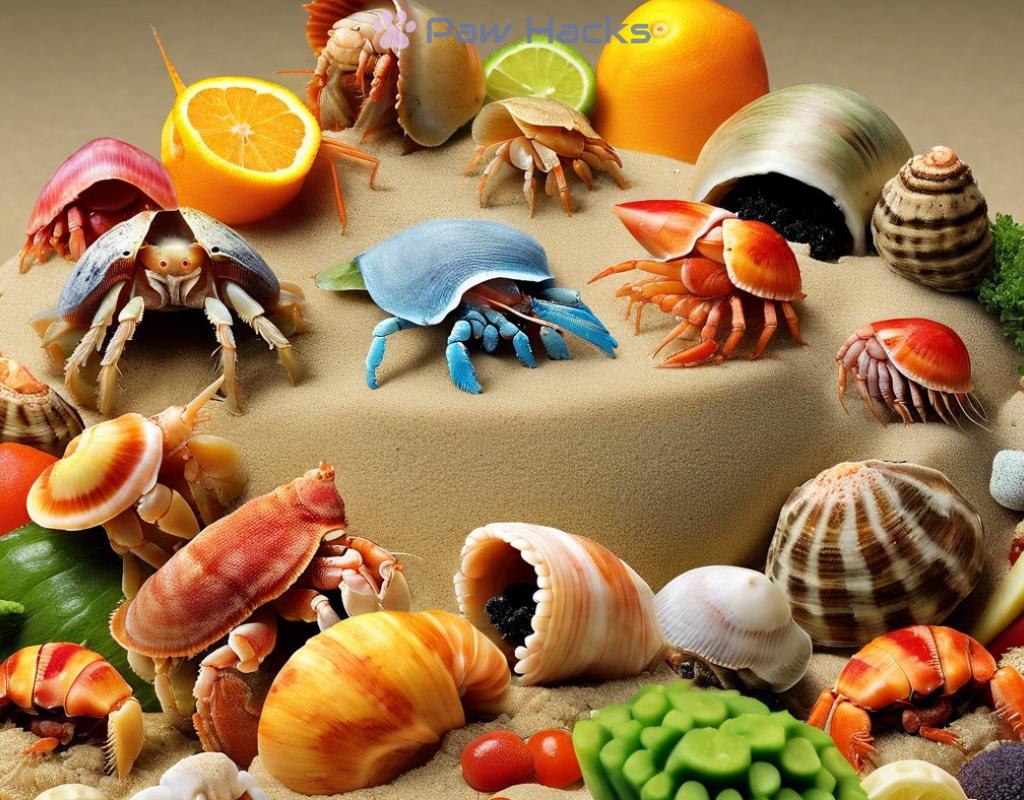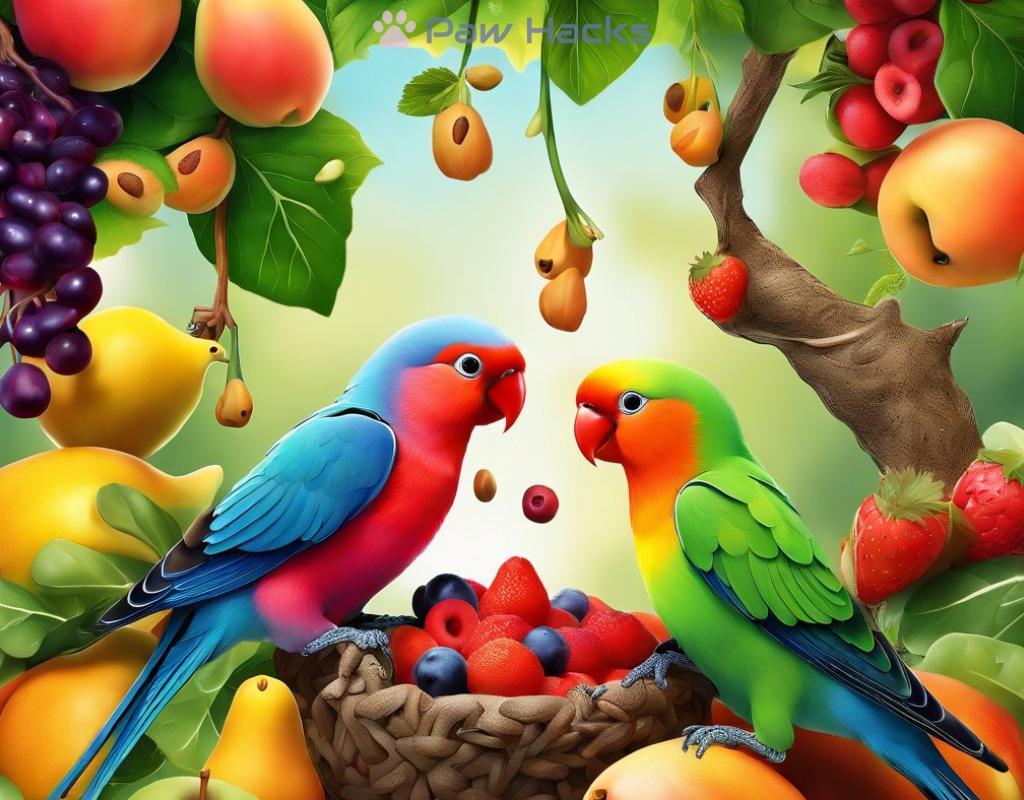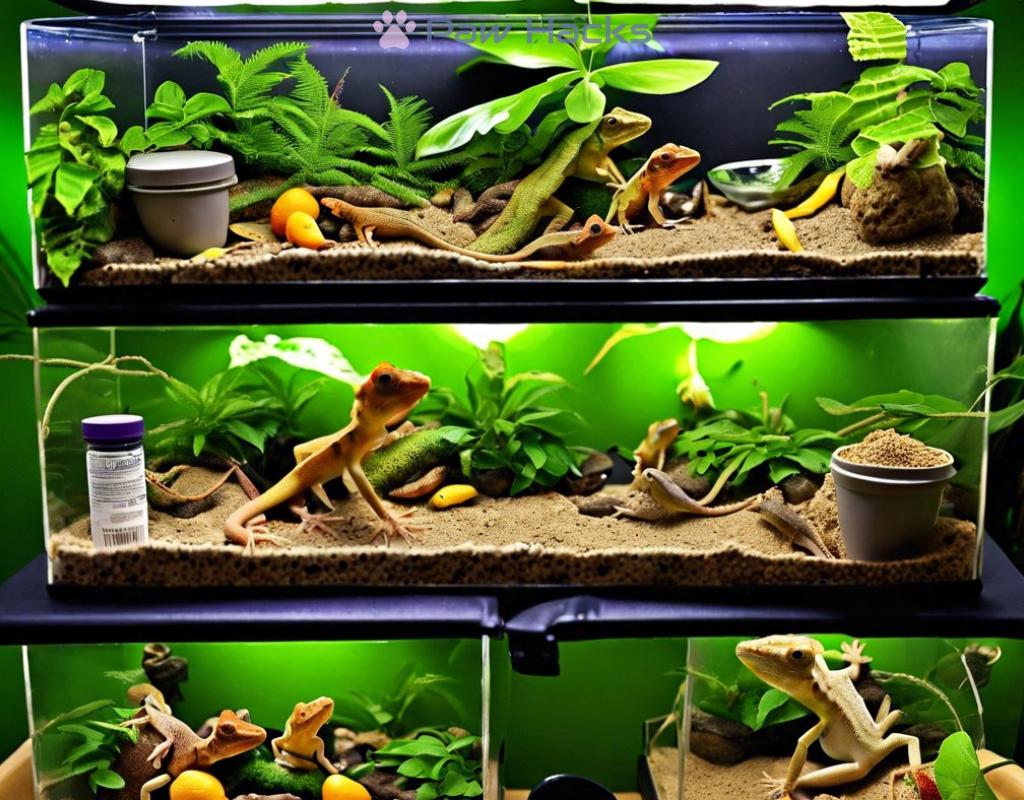Best Foods for Hermit Crabs
Nutrient-Packed Treats: The Ultimate Diet for Happy Hermit Crabs
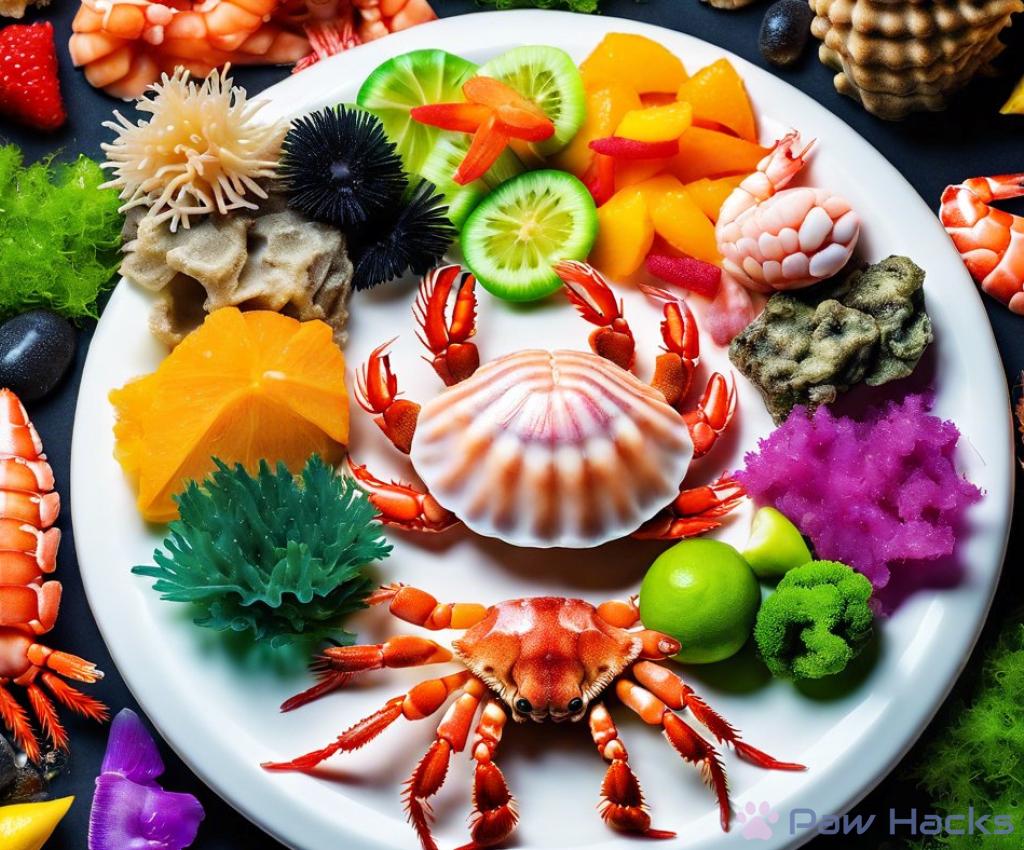
Maintaining the health and happiness of your hermit crab is essential, and one of the best ways to achieve this is through a nutrient-rich diet. Just like any pet, hermit crabs thrive on a balanced mix of food that caters to their specific needs. In this article, we’ll explore the best food options that will keep your little crustaceans active and content.
Fresh fruits and vegetables are not just colorful additions to your hermit crab’s diet; they are packed with essential vitamins and minerals. These foods can enhance their overall well-being and support proper growth.
Here’s a list of some safe fruits and vegetables you can offer:
- Carrots
- Broccoli
- Sweet potatoes
- Apples
- Bananas
- Spinach
Hermit crabs are omnivores, meaning they need a mix of plant and animal-based foods. Including protein-rich foods in their diet is crucial for their growth and molting processes. Here are some excellent protein sources to consider:
| Protein Source | Benefits |
|---|---|
| Fish Flakes | High in essential fatty acids |
| Eggshells | Source of calcium for strong shells |
| Cooked Chicken | Lean protein for energy |
| Mealworms | Rich in protein and fat |
While fresh foods are fantastic, sometimes you need the convenience of commercial hermit crab diets. Many of these products are specifically formulated to meet the nutritional needs of hermit crabs, providing a balanced mix of everything they need to thrive.
When selecting a commercial diet, look for options that contain whole ingredients and do not have artificial additives. These can be a great supplement to their diet, ensuring your hermit crabs get a well-rounded meal with minimal effort.
The Best Fresh Foods to Keep Your Hermit Crab Thriving
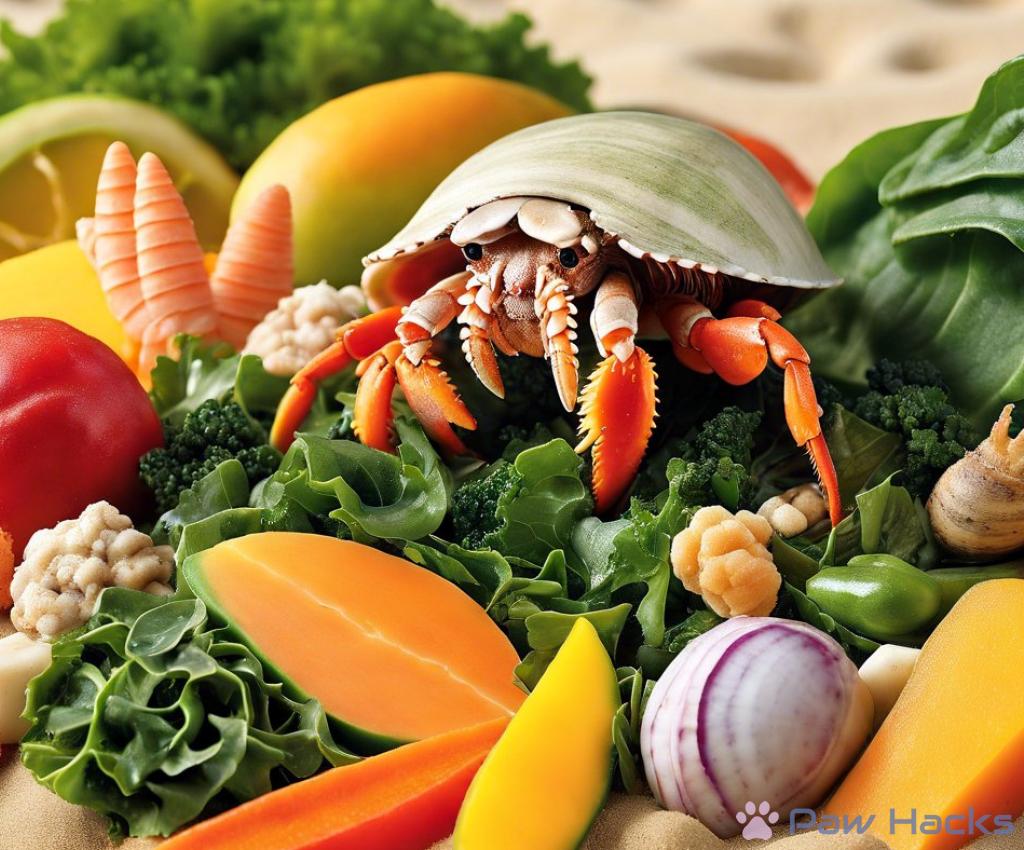
When it comes to keeping your hermit crab healthy, fresh foods are an essential component that can significantly impact their vitality. By incorporating a variety of fresh fruits and vegetables into their diet, you not only introduce essential nutrients but also stimulate their natural foraging instincts. Hermit crabs, being curious creatures, benefit from the texture and flavors of fresh produce, making mealtime an engaging experience.
Fruits serve as a fantastic source of hydration and energy for hermit crabs. Offering options like juicy watermelon or tasty papaya can provide them with a refreshing snack that is rich in vitamins. These fruits are not only enjoyable but also promote healthy digestion. Remember to introduce fruits gradually to monitor any reactions, ensuring your little friend enjoys the treat without any discomfort.
Vegetables play a crucial role in your hermit crab’s diet, offering fiber and a range of vitamins that support their overall health. Including options like zucchini and bell peppers can enhance their nutritional intake while keeping their meals exciting. The key is to chop these vegetables into manageable pieces, allowing your hermit crab to easily munch on them. Rotating the veggies you provide can ensure that they receive a broad spectrum of nutrients, contributing to their long-term well-being.
Essential Supplements: Enhancing Your Hermit Crab’s Health
While a varied diet of fruits, vegetables, and protein sources is fundamental for your hermit crab’s well-being, the addition of essential supplements can take their health to the next level. These supplements provide vital nutrients that may not be sufficiently present in their regular diet. By enhancing their nutritional intake, you can support their immune system, shell health, and overall vitality.
Calcium is a critical component for hermit crabs, especially during molting when they require extra support to strengthen their new shells. Adding calcium supplements to their diet can significantly impact their health. Options such as cuttlebone, which is often found in pet stores, can be a great natural source of calcium. You can also provide crushed eggshells, which not only supply calcium but also encourage foraging behavior.
Just like humans, hermit crabs can benefit from a variety of vitamins and minerals. Multivitamin supplements designed for crustaceans can help fill any dietary gaps. These supplements come in various forms, such as powders or liquid drops that can be mixed with their food. Regularly incorporating these multivitamins ensures that your hermit crab receives a comprehensive range of nutrients that support growth and vitality.
Maintaining a healthy gut is essential for the overall health of your hermit crab. Probiotics can aid in digestion and enhance nutrient absorption, making them an excellent addition to their diet. You can find specialized probiotic supplements formulated for hermit crabs, which can help promote a balanced gut flora. These can be particularly beneficial when introducing new foods, helping your hermit crab adjust without complications.
By understanding the importance of these essential supplements, you can ensure that your hermit crab not only thrives but also enjoys a long and healthy life. Incorporating these elements into their diet will create a well-rounded nutritional plan, further enhancing their quality of life.
Avoiding Toxic Foods: What Not to Feed Your Hermit Crab
While selecting the right foods for your hermit crab is crucial for their health, knowing what to avoid is equally important. Some foods can be harmful or even toxic to these little creatures, leading to serious health issues or even death. Understanding which items could jeopardize your hermit crab’s well-being is essential for responsible pet ownership.
Before you toss any food into your hermit crab’s tank, ensure it’s safe for consumption. Certain foods that are perfectly fine for humans or other pets can pose significant risks for hermit crabs. Here are some common offenders you should avoid:
- Avocado: Contains a substance called persin, which can be toxic.
- Citrus Fruits: Items like oranges and lemons can cause digestive distress.
- Chocolate: Contains theobromine, which is harmful to many animals, including hermit crabs.
- Onions and Garlic: Can lead to gastrointestinal problems.
- Processed Foods: Items like chips or cookies often contain preservatives and additives that are not suitable for hermit crabs.
Even with the best intentions, sometimes a hermit crab might ingest something harmful. Knowing the symptoms of toxicity can help you act quickly. Watch for these signs:
- Loss of Appetite: If your hermit crab stops eating, it could be a sign of distress.
- Lethargy: A significant decrease in activity levels can indicate illness.
- Abnormal Behavior: If your hermit crab is hiding excessively or acting strangely, it could be a warning sign.
To ensure your hermit crab remains safe from toxic foods, consider implementing a few simple practices. Always research new foods before introducing them into their diet, and keep a list of safe options handy. By fostering a safe food environment, you can significantly enhance your hermit crab’s quality of life and longevity.
Creating a Balanced Diet: Mixing Dry and Fresh Foods for Optimal Care
Creating a balanced diet for your hermit crab is not just about variety; it’s about ensuring that each meal provides the nutrients necessary for their health and vitality. By combining dry foods with fresh options, you can offer a diet that supports their growth, enhances their immune system, and fuels their natural behaviors. This approach mimics the diverse diet they would encounter in their natural habitat, allowing them to thrive in captivity.
Dry foods are often the cornerstone of a hermit crab’s diet. These products are designed to be nutrient-dense, providing essential vitamins and minerals to support their overall health. Many commercial diets contain a mix of ingredients that cater to their omnivorous nature. When selecting these foods, prioritize those that list whole foods as primary ingredients, avoiding those with artificial additives. Dry foods are not only convenient but also help maintain their shell strength and digestive health. However, it’s crucial to remember that while they are an essential part of the diet, they should not be the sole component.
Incorporating fresh foods into your hermit crab’s diet adds a burst of flavor and hydration, which is vital for their well-being. Fresh fruits and vegetables offer a range of textures and tastes that can stimulate your pet’s natural foraging instincts. While dry foods provide the necessary nutrients, fresh options can enhance their diet with additional vitamins, minerals, and fiber. For example, offering fresh carrots or leafy greens not only improves their nutritional intake but also promotes healthy digestion. To optimize their diet, consider rotating the types of fresh produce you provide, ensuring they receive a broad spectrum of nutrients while keeping mealtime exciting and engaging.
Finding the perfect balance between dry and fresh foods is essential for your hermit crab’s health. A good rule of thumb is to offer dry food as the primary component of their diet while supplementing with fresh foods a few times a week. This strategy helps ensure they receive all the necessary nutrients while enjoying the benefits of fresh produce. Keep an eye on their preferences and adjust accordingly, as individual hermit crabs may have different tastes. Regularly assess their health and behavior, as a well-balanced diet should result in an active, healthy, and happy hermit crab.
Share this content:
